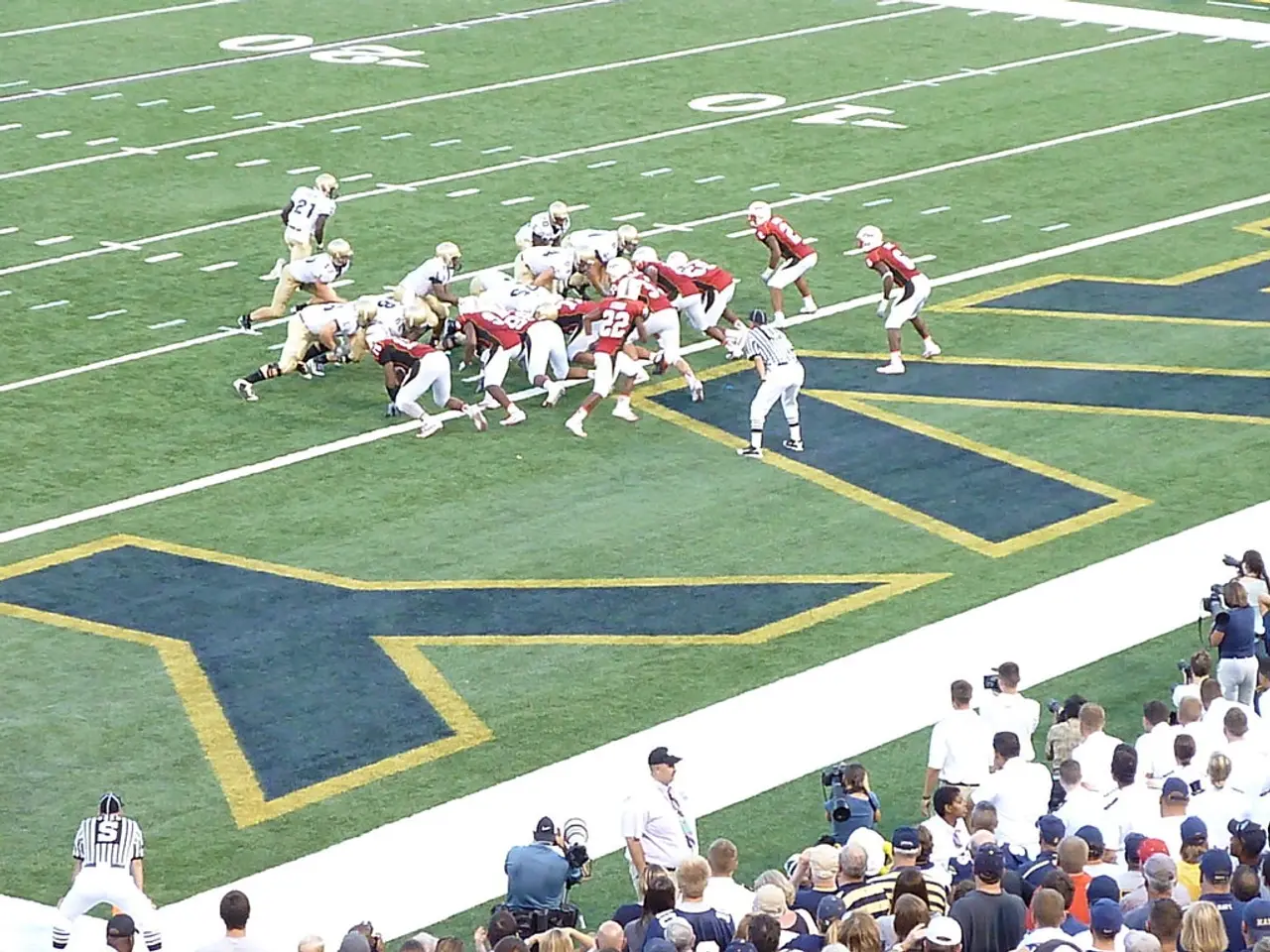SPD advances plans to restrict AfD operations
In the heart of Europe, the political landscape of Germany is facing a significant challenge as the Social Democratic Party (SPD) pushes for the potential ban of the far-right Alternative for Germany (AfD) party. The issue, currently a major point of contention, is dividing the country's political parties, sparking legal considerations, and unfolding through an ongoing process.
The SPD, led by party leader Lars Klingbeil, is the main proponent of banning the AfD. At a federal party conference in June, the SPD unanimously approved a proposal to initiate the legal process to ban the AfD, viewing it as a confirmed extremist and unconstitutional party. Klingbeil emphasized that once the AfD is classified as right-wing extremist by the domestic security service (BfV), a ban will become inevitable.
However, the SPD's coalition partners, the Christian Democratic Union/Christian Social Union (CDU/CSU), led by Chancellor Friedrich Merz, oppose the move to ban the AfD. This opposition reflects a more cautious approach within the German center-right establishment regarding the legal and political implications of banning a major parliamentary party.
The AfD, for its part, rejects the classification and accusations, calling the BfV’s decision politically motivated and a severe blow to democracy. AfD leaders argue they are being discredited and persecuted, and have legally challenged their extremist classification, temporarily suspending its effects pending court rulings.
The BfV formally classified the AfD as a "confirmed right-wing extremist" organization in May, based on a detailed 1,100-page report describing it as racist and anti-Muslim. A formal ban requires gathering sufficient evidence of anti-constitutional activities, which the SPD plans to do through a dedicated working group. If successful, the case would be brought before the Federal Constitutional Court, which holds exclusive authority to ban political parties in Germany.
The legal threshold for banning a party is high, rooted in the German Basic Law, which protects democratic pluralism but allows bans if a party actively seeks to undermine the constitutional order. The SPD's approach is to establish incontrovertible proof that the AfD violates these principles to justify such a ban.
Meanwhile, Poland has announced it will start border controls with Germany next Monday in response to rising tensions. The duration of these controls will depend on Germany's actions.
Public opinion appears divided but shows considerable support for a ban; a May poll found 48% in favor of banning the AfD and 61% considering it extremist. The Greens have recently spoken out in favor of a working group to act early before the AfD further undermines democracy.
The outcome depends on the legal proof of unconstitutional activities by the AfD and court rulings expected in the near future. The SPD is advocating for immediate preparations for a ban application against the AfD, according to a motion passed at their federal party conference in Berlin. However, the CDU/CSU coalition partners oppose this move, highlighting political tension. The fate of the AfD hangs in the balance, as Germany navigates the complexities of political ban procedures and the future of its democratic landscape.
The SPD, led by Lars Klingbeil, is pushing for a legal ban of the AfD, viewing it as a confirmed extremist and unconstitutional party, while the CDU/CSU, led by Chancellor Friedrich Merz, opposes this move. Meanwhile, the public opinion shows considerable support for a ban, with 48% in favor and 61% considering the AfD extremist, as stated in a recent poll.








